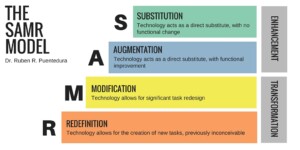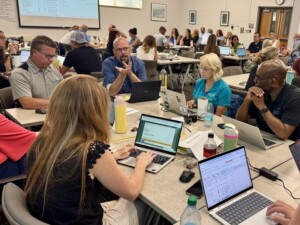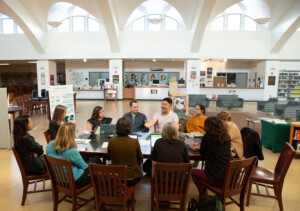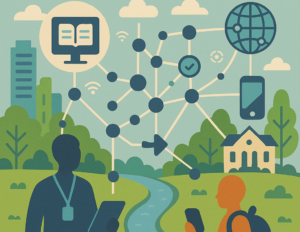Posts by Nate McClennen
The CHOICE We Make: The Critically Human Skills That Define Our Future
Explore the CHOICE framework for critically human skills and redefine education to foster agency, compassion, and integrity in an AI-driven world.
What if Proficiency is not Proficient? The Case for Calibration
Calibration ensures consistent, equitable assessments in CBE. Learn why shared judgment is essential for personalized, competency-based systems.
Rethinking SAMR in the Age of AI: Why the Model Needs a Second Axis
The SAMR model needs a second axis to account for AI’s diverse impacts on learning, emphasizing both positive and negative outcomes.
The Power of Participation: Why Public Leadership and Civic Readiness is a Solution to our Schools’ Engagement Problem
Discover how the power of participation reshapes education, turning students into active co-creators of their learning experiences.
So you can “Finish School” in 2 Hours a Day, Then What?
"AI in education: Alpha School’s 2-hour mastery-based model and experiential learning redefine student outcomes and the future of learning."
How Can We Build Strategic Learning Organizations? The Power of ‘When’
Learn how to become a strategic learning organization and align your educational initiatives for better outcomes.
Leading With Learning: A Webinar Series Full of Guidance for District Leaders
A webinar series by C!E and Getting Smart equips district leaders with strategies to navigate political challenges and foster inclusive community visioning.
What is the Evolving Role of Future Educators?
Explore the new educator responsibilities in classrooms that enhance learning through technology and personalized experiences.
How can we reimagine where learning happens? Designing schools as community hubs within a personalized ecosystem
Exploring schools as community hubs, integrating real-world and digital resources for a personalized learning ecosystem.
The Transcript Trap: Why Our Students Need Credentials, Not Just Grades
Our education system should prioritize credentials over grades to better prepare students for a dynamic workforce.












